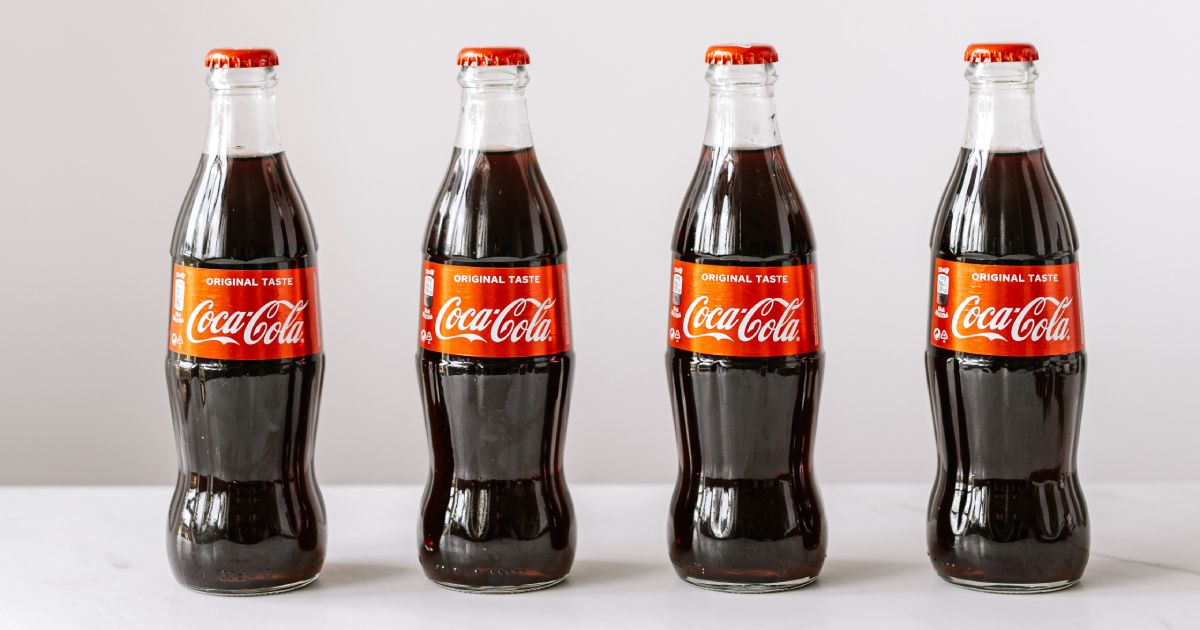Private vs White Labeling: What's the Difference?

The branding approaches businesses adopt significantly influence how products and services are perceived by consumers. Two notable strategies in this realm are private labeling and white labeling.
Although both involve rebranding offerings under different names, they possess unique characteristics and implications.
This article aims to explore the intricacies of private labeling and white labeling, guiding you through the considerations surrounding these branding choices for your business venture.
Private Labeling: Customization with Identity

Private labeling is a business strategy where one company manufactures products or services that are then sold to another company. The purchasing company brands and markets these offerings under their own label. It involves a partnership between the private label manufacturer and the brand owner, who customizes and promotes the products. This approach is commonly used in retail, where stores offer their own branded products alongside well-known brands.
Private labeling offers several advantages. Crucially, it allows businesses to create a distinct product identity, fostering differentiation from competitors and carving a unique market niche. It also provides control over pricing, tailored marketing, and the overall customer experience. Additionally, private labeling can facilitate a quicker route to market entry by leveraging existing products or services, minimizing the need for extensive product development efforts.
Here are a few examples of brands that are known for their private labeled products:
- Great Value (Walmart): Walmart's Great Value brand offers a wide variety of private labeled products across different categories, including groceries, household goods, and more.
- Kirkland Signature (Costco): Costco's private label brand, Kirkland Signature, covers everything from food items to clothing, electronics, and household essentials.
- Amazon Basics (Amazon): Amazon offers its own private label, Amazon Basics, which includes a range of products like electronics, office supplies, and home essentials.
- Up&Up (Target): Target's private label brand, Up&Up, spans various categories such as health and beauty, household essentials, and baby products.
- 365 Everyday Value (Whole Foods Market): Whole Foods Market offers private labeled products under the brand "365 Everyday Value," including organic and natural foods.
- Trader Joe's Brand (Trader Joe's): Trader Joe's is well-known for its private labeled products, covering a wide array of unique and specialty food items.
- Member's Mark (Sam's Club): Sam's Club offers private labeled products under the brand Member's Mark, which includes everything from groceries to home goods.
- Sephora Collection: Sephora's in-house brand, Sephora Collection, features a variety of cosmetics and skincare products that are white labeled.
- CVS Health: CVS Pharmacy offers a range of health and wellness products under the CVS Health brand, including over-the-counter medications, vitamins, and more.
- Signature Select (Safeway): Safeway's private label brand, Signature Select, encompasses a range of food and beverage products.
- Nice! (Walgreens) (Walgreens): Walgreens' private label brand, Nice!, offers a variety of affordable household items, snacks, and beverages.
The core attraction of private labeling lies in its capacity to enable a strategic approach to product development and market entry. By giving businesses control over shaping various aspects of their offerings, private labeling serves as a powerful means to establish a unique market presence while streamlining the process of delivering products to the intended customer base.
Pros of Private Labeling:
- Brand Control and Differentiation: Private labeling allows businesses to create a unique product identity and differentiate themselves from competitors. This can lead to increased brand loyalty and customer recognition.
- Customization: Private labeling provides the flexibility to customize products according to specific market needs, trends, and customer preferences, enhancing the potential for success.
- Profit Margin Control: Businesses have more control over pricing and profit margins since they handle production costs and can adjust pricing strategies to maximize profits.
- Quicker Market Entry: Private labeling often involves existing products, reducing the need for extensive product development. This enables quicker entry into the market compared to creating products from scratch.
- Customer Loyalty: When customers associate a unique product with a brand, it can foster stronger customer loyalty, as they can only find that particular product from that brand.
Cons of Private Labeling:
- Resource Intensive: Private labeling demands resources for quality control, production oversight, and marketing efforts, which might be challenging for smaller businesses with limited resources.
- Dependency on Suppliers: Businesses rely on third-party manufacturers for product quality and consistency. A lapse in supplier quality could reflect negatively on the brand.
- Limited Innovation: While customization is possible, private labeling may limit the business's ability to innovate and create truly groundbreaking products.
- Risk of Copycat Products: Since private labeled products aren't exclusive, competitors could replicate similar offerings, diluting the brand's uniqueness.
- Marketing Challenges: Establishing a new brand requires significant marketing efforts to gain recognition and customer trust, potentially requiring additional investments.
- Quality Control: Maintaining consistent product quality can be challenging when relying on third-party manufacturers, risking inconsistencies in the final product.
White Labeling: Versatility and Cost-Efficiency

White labeling is a contrasting approach to private labeling, where a business acquires products or services from a manufacturer and rebrands them as their own offerings. This strategy is prevalent across various industries, especially those requiring specialized expertise or resources. For example, a marketing agency looking to provide website design services without an in-house design team can leverage white labeling to offer those services under their own brand by utilizing external expertise.
The primary advantage of white labeling is that it allows businesses to present a diverse range of services without substantial investments in skill development or complex production processes. This versatility contributes to increased efficiency and cost-effectiveness, as companies can readily utilize existing solutions rather than creating them from scratch. It's akin to having a ready-made toolkit, enabling enterprises to cater to a wide range of needs without dedicating excessive resources to each endeavor.
However, white labeling also comes with the potential drawback of relinquishing some control over product development and quality assurance. By relying on third-party offerings, businesses must trust their partners' ability to maintain the desired level of excellence. This raises concerns about the alignment between the final product and the company's brand values and customer expectations, necessitating a careful approach to partner selection and quality control measures.
White labeling is a flexible strategy that allows businesses to offer a diverse range of services without having to develop specialized expertise or complex production processes in-house. While it creates a reliance on external partners, careful selection of reliable vendors and rigorous quality assurance practices can address potential risks. This approach enables companies to leverage the versatility and efficiency advantages of white labeling.
Pros of White Labeling:
- Diverse Product Range: White labeling enables businesses to expand their product offerings without the need for extensive in-house development, allowing them to cater to a broader audience.
- Cost Efficiency: White labeling can be more cost-effective than developing products from scratch, as it eliminates the need for research, development, and production processes.
- Expertise Utilization: Businesses can leverage the expertise of specialized manufacturers, ensuring that products meet high-quality standards and benefiting from established knowledge.
- Faster Time-to-Market: White labeling offers a faster route to market entry since businesses can access pre-existing products, reducing development and testing timelines.
- Versatility: Businesses can enter diverse markets and industries by utilizing white labeled products across various segments.
Cons of White Labeling:
- Lack of Control: Businesses have limited control over product development and quality since they rely on third-party manufacturers for production and consistency.
- Dependency on Suppliers: The success of white labeling hinges on the reliability and quality of the chosen suppliers. A lapse in supplier performance can impact the business's reputation.
- Branding Challenges: White labeled products lack unique branding and identity, making it challenging to differentiate from competitors who may offer similar products.
- Limited Innovation: White labeling may limit a business's ability to innovate and create unique products that set them apart in the market.
- Quality Variability: The quality of white labeled products can vary based on supplier performance, potentially affecting customer satisfaction and brand perception.
- Competitive Pressure: As multiple businesses white label the same products, the market can become saturated with similar offerings, leading to increased competition and potential price wars.
Choosing Between Private Labeling and White Labeling
The choice between private labeling or white labeling requires a careful evaluation of your business goals, resources, and target audience. Private labeling is ideal when you aim to create a distinct product identity. It allows you to craft a unique brand narrative and foster a strong connection with customers through personalized offerings. However, it demands significant resources and operational capabilities to oversee production and marketing.
On the other hand, white labeling is a viable option when your goal is to provide a diverse range of services without specializing in every domain. It enables you to leverage external expertise and established solutions, reducing the need for extensive skill development or complex production processes. The key to successful white labeling lies in selecting reliable partners that align with your quality standards and customer satisfaction objectives.
Ultimately, your decision should align with your business aspirations, capabilities, and customer-centric goals, as it shapes your brand's trajectory and resonance with your audience.
Final Thoughts
In conclusion, private labeling and white labeling present unique advantages, empowering businesses to craft offerings that align with diverse market demands. A thoughtful evaluation of your organization's goals and available resources will steer you towards the branding approach that resonates most effectively, facilitating the establishment of a robust brand identity within the marketplace.
Key Takeaways
| Aspect | Whitelabeling | Private Labeling |
|---|---|---|
| Ownership | Manufacturer owns the product | Retailer owns the brand |
| Branding | Manufacturer's branding | Retailer's branding |
| Control | Manufacturer controls production | Retailer controls marketing |
| Customization | Limited customization for retailer | Extensive customization by retailer |
| Investment | Lower initial investment for retailer | Higher initial investment for retailer |
| Risk | Lower risk for retailer | Higher risk for retailer |
| Competition | Higher competition among retailers | Lower competition among retailers |
| Flexibility | Limited flexibility for retailer | More flexibility for retailer |
| Marketing | Less marketing efforts required | More marketing efforts required |





